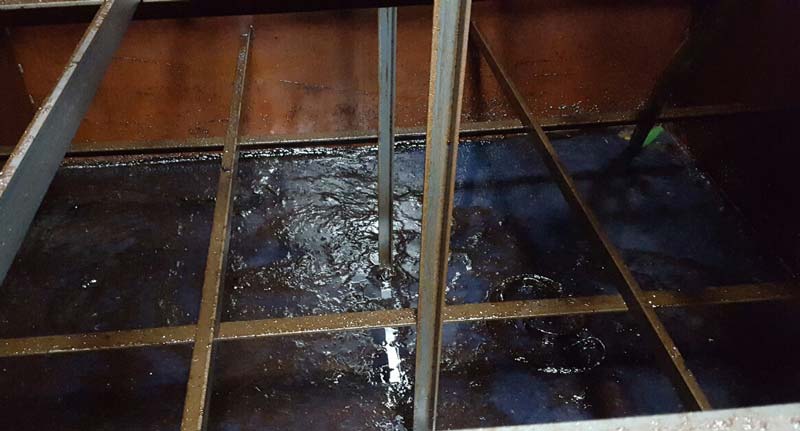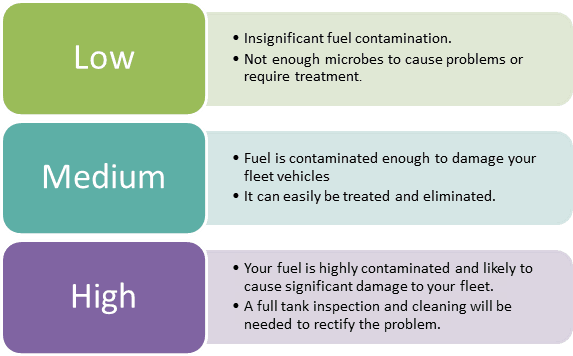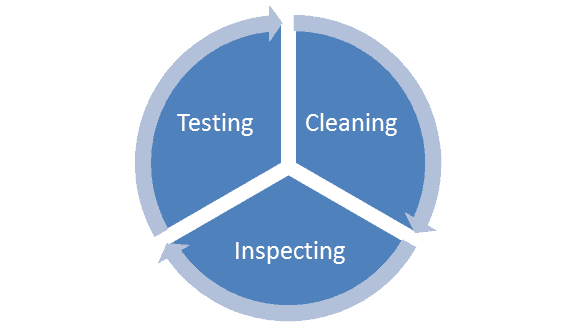80% of all diesel engine failures trace back to one thing – contaminated fuel!
When is the last time you had your fuel inspected or cleaned? Right now, dirty fuel could be causing untold damage to your fleet vehicles’ engines. And you may not even know until it’s too late and the damage has been done.
A fuel storage tank before cleaning

How your fuel could be compromised
How old is your fuel? Under normal conditions, fuel is usable for 12 months. After that it begins to deteriorate. It interacts with oxygen in the air and sediments will begin to form that get sucked into fuel lines and clog filters.
It can become contaminated with water from condensation in the tanks and fungi and bacteria can quickly grow. These ‘diesel bugs‘ can multiply quickly leaving a thick sludge and film on your fuel behind. Which means serious engine trouble on the horizon for you.
Counting the costs of fuel deterioration
Quite often the problem isn’t identified until it’s too late:
- Complete engine failure
- Problems starting engines
-
Cylinders, rings and injectors all needing to be replaced.
But there are usually warning signs. If you notice any of the following signs you should get your fuel and tanks inspected as quickly as possible:
- Increased oil or fuel consumption
- Clogs of coffee like sediments in filters
- Sudden power loss in engines
- Milky discolouration of fuel
- Rotten fuel smell or black smoke from vehicle exhausts.
Don’t wait until your fleet vehicles have been seriously compromised. The engine and part replacements, as well as the downtime in business operations, won’t be worth it.
Fuel contamination solutions
We provide end to end fuel contamination solutions:
Fuel Testing
The only way to be certain about your fuel, is to have it tested for contamination. We’ll take samples of your fuel and have it tested by 100% independent laboratories. Not only will you be able to identify if there is a problem, you’ll also know how serious that problem is:

Tank Cleaning
If your fuel is highly contaminated, it’s not enough to just clean the fuel. You also need to clean the tank. If clean fuel is returned to a contaminated tank, it won’t be long before the sludge and gums build up again. We deal with contamination by:
- Removing all the contaminated fuel from the tank
- Thoroughly cleaning and decontaminating the tank, fuel lines and filters
- Salvaging and polishing every usable drop of fuel
- Returning cleaned fuel back to the tank with minimum down time for you
Tank Inspection
During the tank cleaning process our experts can carry out a full tank inspection. Contaminated fuel doesn’t just damage engines, it can also corrode and damage the tank holding it. Our combination of high pressure, ultrasonic and magnetic-die tests will give you piece of mind that your tanks are fit for purpose. If any repairs are required, our skilled engineers can carry them out.

